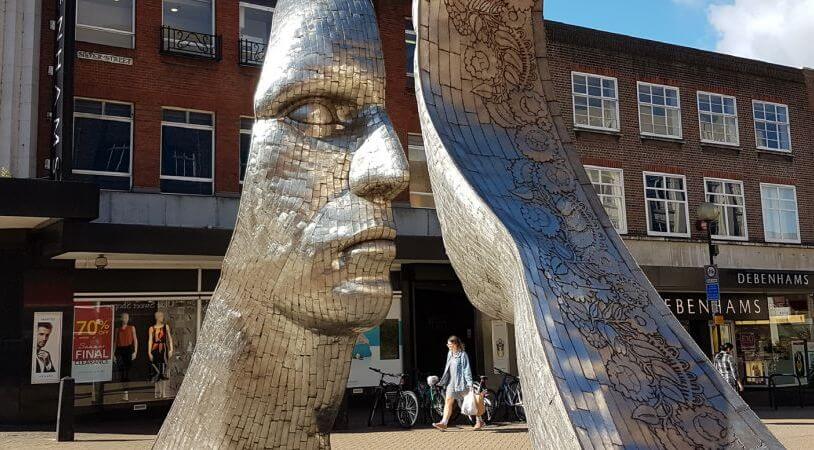 Complex Post-Traumatic Stress Disorder (C-PTSD) is a severe mental health condition that arises from prolonged exposure to traumatic experiences, often involving repeated abuse, neglect, or violence. Unlike standard PTSD, which typically results from a single traumatic event, C-PTSD is the result of chronic trauma that persists over a long period. In a bustling city like Mumbai, where life can be both vibrant and overwhelming, understanding C-PTSD is crucial for those who might be suffering in silence. This blog explores the symptoms of complex PTSD, the available treatment options, and how individuals in Mumbai can thrive despite their trauma.
Complex Post-Traumatic Stress Disorder (C-PTSD) is a severe mental health condition that arises from prolonged exposure to traumatic experiences, often involving repeated abuse, neglect, or violence. Unlike standard PTSD, which typically results from a single traumatic event, C-PTSD is the result of chronic trauma that persists over a long period. In a bustling city like Mumbai, where life can be both vibrant and overwhelming, understanding C-PTSD is crucial for those who might be suffering in silence. This blog explores the symptoms of complex PTSD, the available treatment options, and how individuals in Mumbai can thrive despite their trauma.
Understanding Complex PTSD
Complex PTSD differs from traditional PTSD in that it involves more pervasive emotional and psychological distress. It is often associated with repeated trauma over months or even years, such as in cases of childhood abuse, domestic violence, or human trafficking. This type of trauma can lead to profound changes in a person’s self-perception, ability to trust others, and overall mental health.
Key Symptoms of Complex PTSD
The symptoms of complex PTSD are more extensive and deeply rooted compared to those of PTSD. Recognizing these symptoms is the first step toward seeking help:
* Emotional Dysregulation: Individuals with C-PTSD often experience intense emotions that they find difficult to control. This can manifest as extreme anger, sadness, or fear, often without a clear trigger.
* Negative Self-Perception: Those with C-PTSD may develop a persistent sense of worthlessness, guilt, or shame. They often blame themselves for the trauma and struggle with feelings of hopelessness.
* Difficulty in Relationships: Trust issues, fear of abandonment, and an inability to maintain close relationships are common. This stems from the deep-seated fear and anxiety that others may harm or betray them.
* Dissociation: C-PTSD sufferers might experience dissociation, where they feel detached from their body or surroundings. This is a defense mechanism against overwhelming trauma.
* Hypervigilance: Constantly being on edge, feeling threatened, or easily startled are common in those with C-PTSD. This hyper-awareness can be exhausting and lead to further emotional and physical distress.
* Avoidance: Individuals with C-PTSD may avoid places, people, or situations that remind them of their trauma. This can lead to isolation and further mental health decline.
Treatment Options for Complex PTSD
Treating complex PTSD requires a multifaceted approach that addresses both the psychological and emotional aspects of the disorder. In Mumbai, there are several treatment options available, ranging from therapy to residential treatment programs.
* Cognitive Behavioral Therapy (CBT): CBT is a widely used therapy for C-PTSD. It helps individuals identify and challenge negative thought patterns that contribute to their distress. In Mumbai, experienced therapists offer CBT to help patients reframe their thoughts and reduce symptoms.
* Eye Movement Desensitization and Reprocessing (EMDR): EMDR is a specialized therapy that helps individuals process and reduce the impact of traumatic memories. This therapy is gaining popularity in Mumbai, with several mental health professionals trained in EMDR.
* Dialectical Behavior Therapy (DBT): DBT is particularly effective for those with C-PTSD, as it combines CBT with techniques to manage intense emotions. DBT programs in Mumbai focus on mindfulness, distress tolerance, emotional regulation, and interpersonal effectiveness.
* Residential Treatment: For severe cases, residential treatment may be necessary. Mumbai offers several Clinical Psychologist Mumbai psychologist-led residential treatment centers that provide a safe and supportive environment for individuals to receive intensive therapy and holistic treatments.
Thriving After Trauma: Steps to Recovery
Recovering from complex PTSD is a challenging journey, but it is possible with the right support and treatment. Here are steps that can help individuals in Mumbai move from surviving to thriving:
* Seek Professional Help: The first step is to reach out to a mental health professional who specializes in trauma. In Mumbai, several psychologists and psychiatrists are experienced in treating C-PTSD.
* Build a Support System: Recovery is easier when you have a strong support system. This can include family, friends, support groups, or therapy groups. Mumbai has various support groups for trauma survivors where individuals can connect with others who understand their experiences.
* Practice Self-Care: Self-care is crucial in managing C-PTSD symptoms. This includes regular physical activity, a healthy diet, adequate sleep, and mindfulness practices like yoga. Mumbai offers numerous wellness centers and yoga studios where individuals can learn and practice self-care techniques.
* Set Realistic Goals: Setting small, achievable goals can help build confidence and a sense of accomplishment. Over time, these small victories can lead to significant progress in managing C-PTSD.
* Educate Yourself: Understanding more about complex PTSD can empower individuals to take control of their recovery. There are several resources available online, and Mumbai’s libraries and bookstores also offer a range of books on trauma and recovery.
Conclusion
Complex PTSD is a serious mental health condition that requires a comprehensive and compassionate approach to treatment. In Mumbai, individuals suffering from C-PTSD have access to a variety of treatment options, from therapy to residential programs. With the right support, it is possible not only to manage the symptoms of C-PTSD but also to thrive after trauma. If you or someone you know is struggling with complex PTSD, seeking help is the first step toward recovery. Remember, healing is a journey, and with the right guidance, it is possible to move from merely surviving to truly thriving.